Aciclovir Uses, Side Effects, and Dosage: Your Complete Guide

Ever had a blister pop up out of nowhere, right before an event or a date? For a lot of people, that’s just life with herpes simplex, chickenpox, or shingles. And then comes the buzzword at the pharmacy—Aciclovir. This old-school antiviral has been saving faces, nerves, and even friendships since the late 1970s. There's a lot of info swirling around out there, but not much of it is clear, straight-up, or gives you the inside scoop from both desk and bedside. You want to know when to pop a pill, when to sweat the side effects, and what really happens in your body when Aciclovir steps in. Let’s break it down, because this stuff matters when it’s your skin—and your nerves—on the line.
How Aciclovir Works in the Body
So, first off, how does this medication actually knock out those viral invaders? Aciclovir (sometimes spelled “Acyclovir” in the US) is an antiviral, but it’s way more targeted than most folks realize. Instead of going after all viruses, Aciclovir zeroes in on a handful—the herpes viruses. That covers things like herpes simplex virus type 1 (HSV-1), which causes cold sores, and HSV-2, responsible for genital herpes. It’s also good for varicella-zoster virus—think chickenpox and shingles—but it skips over your common cold, flu, and most other bugs.
The science is this: Aciclovir looks just enough like a building block of the virus's DNA that when the virus tries to multiply, it grabs Aciclovir instead. But Aciclovir brings the building to a dead halt—it’s like switching the regular bricks for rubber ones halfway through a wall. The virus gets stuck, and suddenly it can’t spread. The cool part? Most of your regular cells don’t get fooled, so Aciclovir leaves them alone. That’s why its side-effect profile is usually lighter than a lot of stronger meds.
It doesn’t actually cure you, though, so you’re not getting rid of herpes or shingles for good. Instead, you’re stopping that latest outbreak in its tracks. That means less pain, fewer blisters, and—yeah, this is a big one—less risk of spreading it to someone else. The key here is catching an outbreak early. The sooner you jump on the treatment at the first tingle, burn, or itch, the less action the virus can get in.
This stuff comes in all the shapes: pills, creams, ointments, or even intravenous forms for really serious infections. For something like a cold sore, a topical cream could do the trick, but for genital herpes or shingles, your doc will likely send you home with tablets. If your immune system is weak—say, if you’re going through chemo—they might even go straight for IV Aciclovir.
When to Reach for Aciclovir: Common Uses and Tips
Let’s talk about when this med gets handed out. If you’ve had chickenpox as a kid, that same virus can come back decades later as shingles, and boy, does it burn. Docs usually recommend Aciclovir within 72 hours of the first rash for shingles. Cold sore cropping up for the fifth time this year? You’re the perfect candidate. Sexually active and just had your first run-in with genital herpes? Aciclovir can take the sting out of those first weeks and, later, help keep recurrences in check.
Some people get prescribed Aciclovir as a regular, daily dose. That’s called “suppressive therapy.” It’s usually for folks who get frequent flare-ups—think more than six genital herpes outbreaks a year—or for those who want to cut the odds of passing it to a partner. Not a cure, but the outbreaks drop off dramatically for most people who stay on schedule. If you’ve got a weakened immune system, Aciclovir can save a lot of headaches, and not just the literal kind.
Few tips from real life and the clinic: don’t wait until the full rash or blister is out to start your meds. The earlier, the better. For cold sores, keep a stash of your prescription handy if you’re prone. Remember, though, no med works well if you skip doses. Stick to the schedule—even if you feel better partway through the course. If your doc gives you a 5-day pack, take all 5 days. Stopping partway just gives the virus another shot at you.
Kids get chickenpox? Aciclovir isn’t usually needed unless the child is older, has eczema, or is immune-compromised. For young, healthy kids, chickenpox often passes on its own. For adults (especially pregnant people), that’s a different game—adults are at higher risk of complications, and Aciclovir can be a real lifesaver. It’s also the go-to for newborns with suspected herpes, or folks whose immune systems are knocked way down from other illnesses or treatments.
Don’t expect miracles on day one. Yes, symptoms can improve fast, but the virus never really leaves the building. That’s why outbreaks can return later, especially during stress, illness, or just because your immune system’s taking a nap.
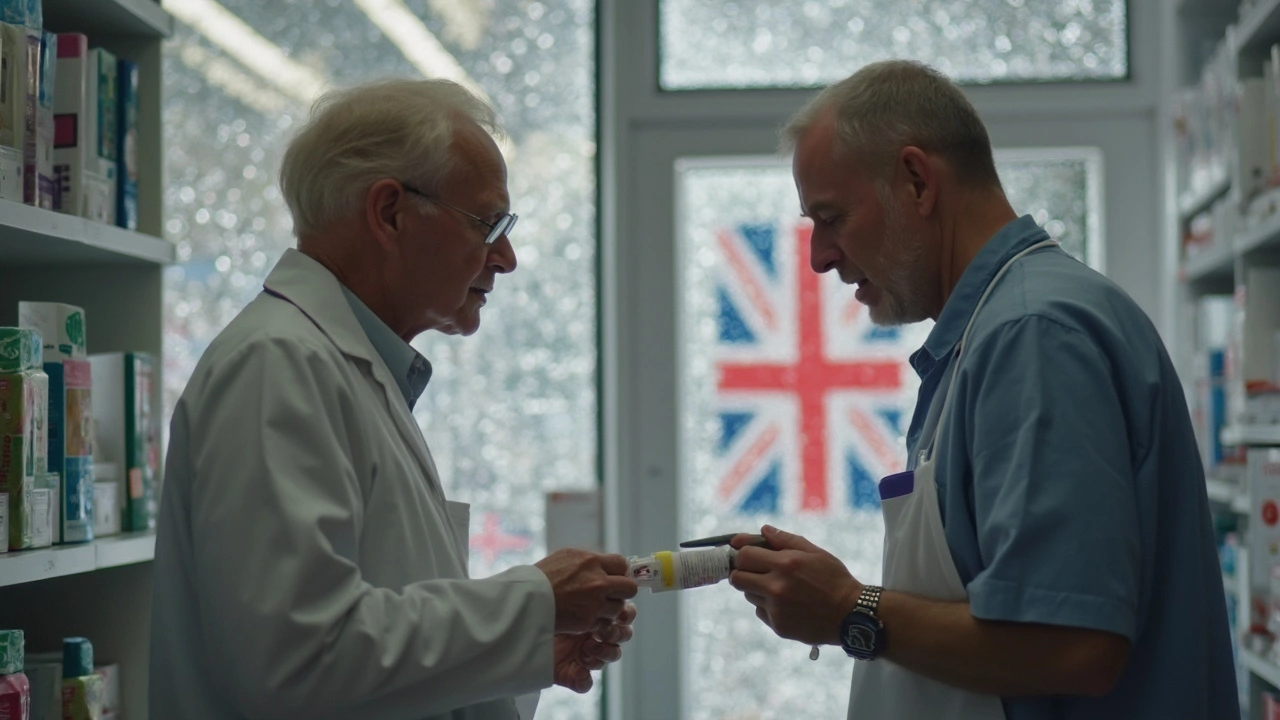
Side Effects: What’s Normal, What’s Not
Most people tolerate Aciclovir just fine, but nobody wants a surprise. The most common things you might notice: mild nausea, headache, or sometimes a tummy that feels off. Rarely, some people get dizzy, or find their taste buds doing weird things. The topical version can make the skin a bit red or irritated—but usually nothing worse than what you’d get from the outbreak itself.
Some folks get a rash that looks different from herpes—itchy, red spots elsewhere can mean you’re having a sensitivity reaction. If that’s you, let your doc know. The rarest but most concerning side effects come from high doses, kidney problems, or the IV version. Aciclovir can, in very unusual cases, mess with your kidneys or your brain—think confusion, hallucinations, or seizures. If you notice much less pee output, or you’re suddenly foggy, don’t just tough it out. That’s not “power through” territory—it’s “call the doc” time.
Drink plenty of water when you’re on Aciclovir. This isn’t just a generic tip—hydration helps flush the medicine and keeps your kidneys happy. It’s especially important if you’re older or taking other meds that affect those organs.
Allergic reactions are rare, but like anything else, not impossible. Swelling, trouble breathing, crazy itching—but again, that’s super uncommon. If you’re on other drugs—like certain painkillers or other antivirals—let your healthcare provider know. Some mixtures don’t play nice together. Pregnancy? Aciclovir has been used for years in all trimesters without big issues, but always double-check if you’re expecting or trying to conceive.
Another thing: if you miss a dose, take it as soon as you remember, unless it’s almost time for the next one. Don’t double up. And don’t share your meds with a buddy, even if their rash looks just like yours. Viruses can act differently, and the wrong treatment can make things worse or delay real help.
Dosage, Myths, and What to Watch for
A typical Aciclovir dose depends on what you’re dealing with. For cold sores, it might be 200 mg five times daily for five days. Shingles? Often 800 mg five times a day for a week. For suppressive treatment, it can be twice daily long-term. It sounds like a lot, but that’s because this medicine leaves your system pretty quickly—you’ve got to keep topping it up so it stays ahead of viral replication.
Here’s a myth: some folks think if they just cram extra pills at the start, they’ll blitz the virus faster. Not true—and you could risk your kidneys. Stick with your healthcare provider’s plan, even if it feels like a routine. The science behind the dose is all about keeping the drug levels right, not overwhelming your system.
For topical Aciclovir, don’t slather it like sunscreen. A thin layer does the job; more isn’t better. And always wash your hands before and after—don’t let the herpes virus hitch a ride to other parts of your body or someone else’s. As odd as it sounds, people have accidentally spread cold sores to their eyes or even genitals just from touching. Smart, steady hygiene really matters with outbreaks.
If you’re immunocompromised or elderly, be extra cautious. Dosing might need a tweak, and you’ll want your kidney function checked before and during treatment. That’s why hospitalized patients usually get monitored a little closer.
Aciclovir resistance is a thing, though still pretty rare. If your outbreaks just aren’t budging, or you keep having them despite taking meds by the book, tell your doc. They might swap you to something like valacyclovir or famciclovir, which are close cousins. Most strains of herpes haven’t figured out how to dodge Aciclovir yet, but the more we use any medicine, the higher the risk in the long run.
Finally, remember—no medicine is a substitute for safe behaviors. Use condoms, disclose your status to partners, and if you’re prone to outbreaks from stress or sun, get ahead with things like sunscreen and better sleep. Aciclovir is a mighty tool, but it’s just one part of keeping herpes and shingles at bay.

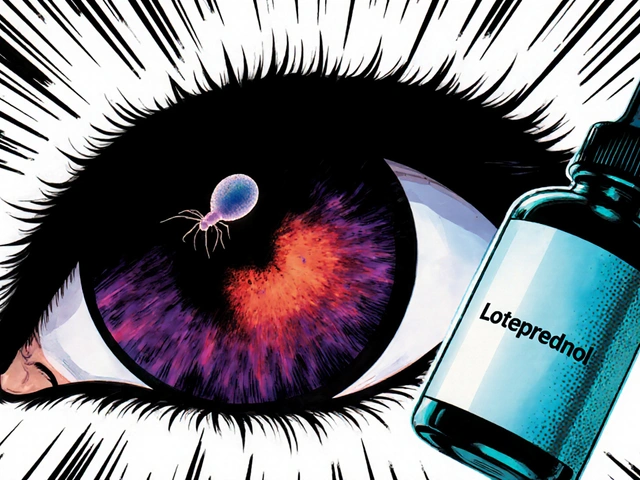
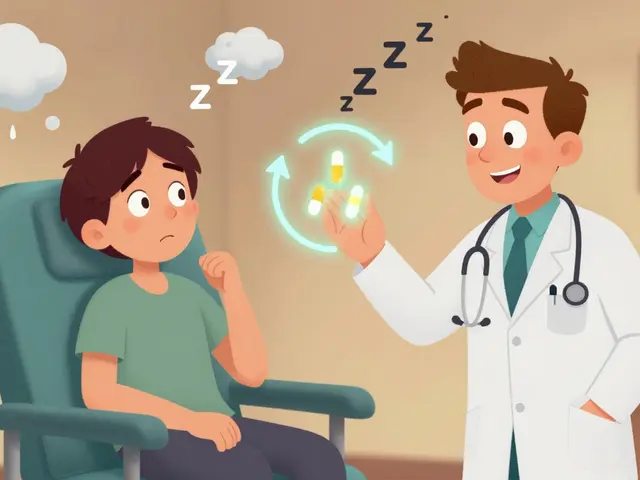
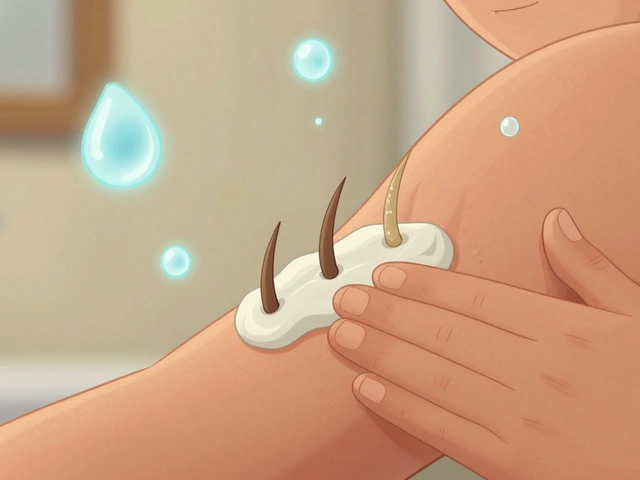

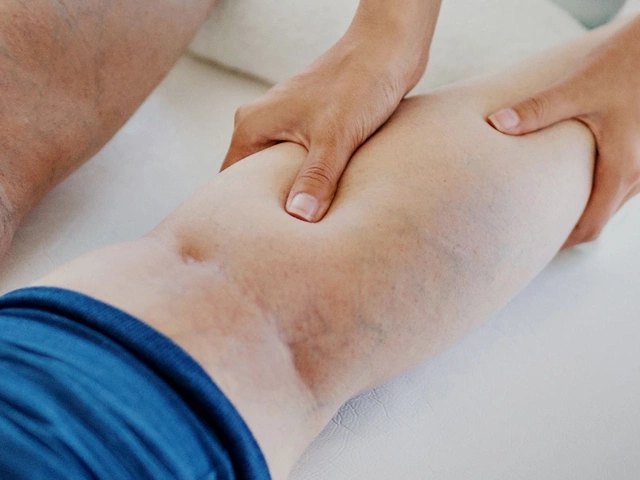
Allison Metzner
June 27, 2025 AT 00:03The pharmaceutical giants are hiding the true side‑effects of Aciclovir, and we’re the pawns in their grand experiment.
william smith
July 17, 2025 AT 04:03Aciclovir works best when started within 48‑72 hours of the first symptom and you should keep the full course even if you feel better.
Timothy Javins
August 6, 2025 AT 08:03Actually, the timing window isn’t that critical; many patients see improvement even when they begin treatment weeks after the outbreak.
Kay Yang
August 26, 2025 AT 12:03Interesting take, but I’ve noticed most friends get faster relief when they don’t wait too long 😌.
Rajesh Kumar Batham
September 15, 2025 AT 16:03💊💧 Staying hydrated and taking the medicine on schedule really does make a difference, especially for older folks.
Bill Gallagher
October 5, 2025 AT 20:03Aciclovir, a guanine analogue, selectively targets the viral DNA polymerase of herpesviruses, thereby halting replication; the drug must first be phosphorylated by the viral thymidine kinase, a step that confers its specificity, once activated, it competes with deoxyguanosine triphosphate, leading to chain termination; this mechanism explains why normal human cells are relatively spared, and why side effects are generally mild; nevertheless, clinicians should monitor renal function, especially in the elderly or those on nephrotoxic drugs; typical oral doses range from 200 mg five times daily for cold sores to 800 mg five times daily for shingles, and the regimen must be adhered to for the full prescribed duration; missed doses should be taken as soon as remembered unless the next dose is imminent, in which case the missed dose is skipped to avoid double‑dosing; topical formulations require only a thin layer applied five times daily, and excessive application does not increase efficacy; while resistance to aciclovir is rare, it can emerge in immunocompromised patients with prolonged therapy, often due to mutations in the viral thymidine kinase gene, in such cases, switching to valacyclovir or famciclovir may restore viral suppression; hydration, as the original article notes, is crucial because the drug is renally excreted and concentrated urine can precipitate nephrotoxicity; patients should also be aware of rare but serious neurologic adverse effects such as confusion, hallucinations, or seizures, especially at high intravenous doses; if any of these symptoms appear, immediate medical evaluation is warranted; the preventive potential of daily suppressive therapy cannot be overstated for individuals with frequent recurrences, as it reduces viral shedding and transmission risk; however, lifestyle modifications, including stress management, adequate sleep, and safe sexual practices, remain essential adjuncts to pharmacotherapy; in summary, aciclovir remains a cornerstone in herpesvirus management, but its optimal use hinges on timely initiation, proper dosing, and vigilant monitoring.
Rajashree Varma
October 26, 2025 AT 00:03Great summary, staying informed and following the guidance will keep you healthier and more confident.